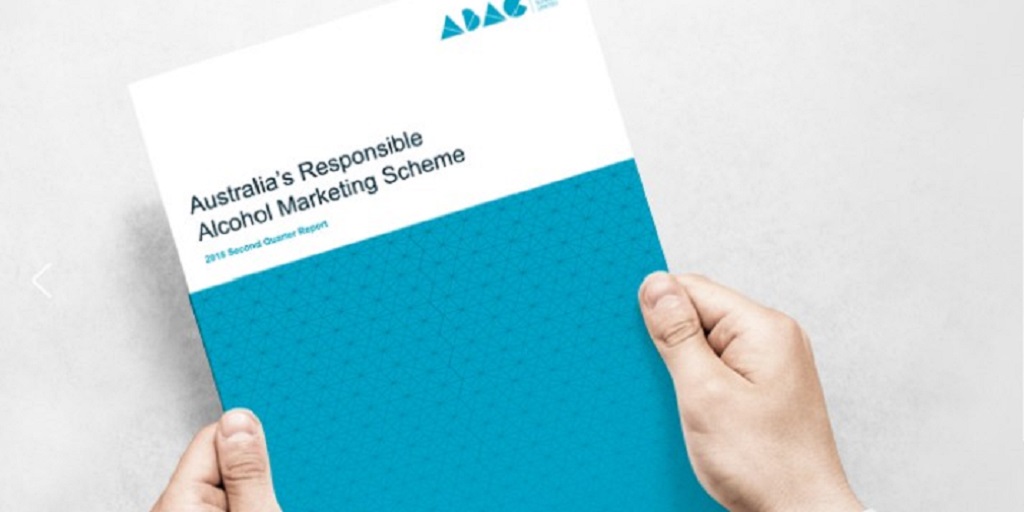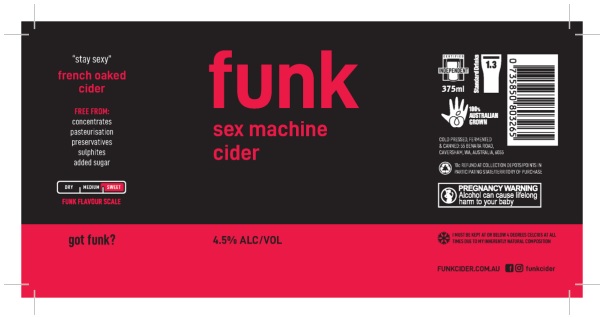
Advert placement issues highlighted by ABAC

The decline in packaging complaints noted in ABAC’s most recent quarterly report has continued but recent rulings have highlighted issues around social media tagging for alcohol brands.
A complaint, which concerned the placement of a Carlton Draught advert within a YouTube video aimed at those suffering depression, highlighted the issues with placement in online content which relies on the correct tagging of content and exclusionary practices by the alcohol advertiser.
The adjudicating ABAC panel for another complaint regarding a beer brand called 40/20 also offered some important guidelines for alcohol brands with regards to tagged photos on social media.
Elsewhere, Funk Cider’s ‘Sex Machine Cider’ was ruled in breach of ABAC rules which prohibit the association of an alcoholic beverage with sexual success.
Carlton Draught
An advert for Carlton Draught raises issues about advertising placement within social media.
The complaint concerned an advertisement for Carlton Draught during a YouTube video titled “How I Cured Years of Depression Within Days”.
The “Ode to the Pub” pre-vetted advert was criticised by an unnamed complainant for being “designed to establish and exploit existing emotional relationships with alcohol”.
They said the placement in a video will be watched by people directly and indirectly affected by depression.
“The harm caused by encouraging alcoholism in a depressed cohort of viewers is significant, and increases pressure towards suicide, domestic violence and other social ill,” they said.
“The advertiser has possibly even specified this cohort as a target for its alcohol advertising. This conduct is so harmful that it breaches norms of common law. I haven’t read your laws or codes but if this isn’t already illegal, it absolutely must become illegal.
“Please understand the importance of harm reduction in alcohol advertising. Why is it even still allowed.”
ABAC stipulates that alcohol must not encourage excessive or rapid consumption, show or encourage irresponsible or offensive behaviour, or suggest that the consumption of alcohol offers a therapeutic benefit.
Carlton & United Breweries responded saying that “while alcohol is certainly consumed in pubs, the intent of this advertisement is to highlight the venues themselves as a space for community and togetherness.”
The brewer explained that it applies exclusions to all CUB campaigns running on YouTube, which apply them to 18+ content only, and actively exclude adverts from appearing on content relating to mental health. However, it said that these exclusions rely on videos being tagged correctly, and in this case the video may have been miscategorised.
An ABAC panel responded saying that the complaint raised an issue about how the code deals with alcohol advertising and vulnerable people.
While ABAC contains express provisions that identifies minors as an ‘at risk’ group in relation to alcohol related harm, it does not specifically name any other groups.
Despite this lack of specific provision, it said, this does not mean alcohol advertising can acceptably be targeted at people with depression or other mental health issues, and it is likely that any issue such as this would fall under other areas of the code, for example that ban alcohol advertising from showing excessive consumption or as having therapeutic benefits.
The panel ruled that while it “does not doubt that the complainant’s concern is genuine” CUB had done everything it could under YouTube rules to ensure the advert was not shown during content aimed at vulnerable or at-risk groups. It dismissed the complaint.
40/20 Beer Company
40/20 Beer Company, which has faced complaints via the ABAC process before, has received a new complaint regarding the Instagram posts of a police Rugby League team in which the company was tagged.
The post shows a player for the Country South Steelers PRLFC in a pool with a can of 40/20 Beer on his arm, which was tagged and appeared on the beer company’s own Instagram account.
“This post demonstrates drinking alcohol during the high-risk behaviour of swimming,” said the complainant.
While ABAC does not apply to “in lieu of payment” sponsorships, it does stipulate that marketing communications cannot show alcohol consumption during activities which require a high degree of alertness or physical coordination, such as the control of a motor vehicle, boat or machinery or swimming.
The company argued that it was not involved in making the post and did not commission it, and on receipt of the complaint it untagged itself from the post.
The ABAC panel suggested that to fall under the jurisdiction of the team, the social media post must be generated by or within the reasonable control of an alcohol marketer.
The ability to control which tags the company was associated with meant it was in control of this particular social media post.
As a result, 40/20 Beer was in breach of its standards. But the ABAC panel did say that there are no precise rules around the responsibilities of alcohol companies and social media accounts.
“For instance, it would not be reasonable to expect tagged posts that offend the ABAC standards to be removed within say a few hours or even a day or two of the post being made (a ‘no-fault breach’ might be suitable in such cases),” it suggested.
“On the other hand, a company should be keeping a regular eye on its own social media accounts and inappropriate user generated comments or tagged posts should not remain for weeks.”
Sex Machine Cider
Funk Cider was criticised for the packaging and outdoor and website marketing of Sex Machine Cider in another ABAC complaint.

According to a complainant well-educated with the code, the name of the product is “foolish and irresponsible” and “clearly contravenes 3 (c)(ii) in relation to the implication of contributing to sexual success.”
“It also appears to contravene 3 (c)(i) in terms of suggesting that use of the product “may create or contribute to a significant change in mood or environment”; 3 (b)(i), in terms of likely appeal to minors; and probably 3 (b)(iv) in the context of placement of an advertising device in a location where young people are likely to be exposed to this promotion,” they said.
Sex Machine Cider has been in Funk’s core range since 2016, the company said, and it is not implied that the consumer will have considerable sexual prowess as a result of drinking the cider.
The company said the name was a play on words regarding how it made the cider “sexier” by ageing it in French Oak, “a process that gives the apple cider a sweeter flavour profile with vanilla notes and a deeper body” and is a reference to the contents of the cider itself.
An ABAC panel replied saying that it is “unusual but not impossible” for there to be a breach based on the name of a product alone.
In the case of Sex Machine Cider, the panel said that even accepting the company’s explanation that the name references its production process, this information “is not readily apparent” to a consumer.
“While most consumers would be unlikely to seriously believe any alcoholic cider, irrespective of its name, will lead to achieving social or sexual success, it is difficult not to interpret the product name as doing anything other than associating the product with active sexual connotations,” it ruled.
On the issue of whether the name associated the product with sexual prowess, the panel ruled that it was in breach of the code.
However, other issues, relating to placement of outdoor advertising, and its potential appeal to minors due to its bright colour scheme, were dismissed.



